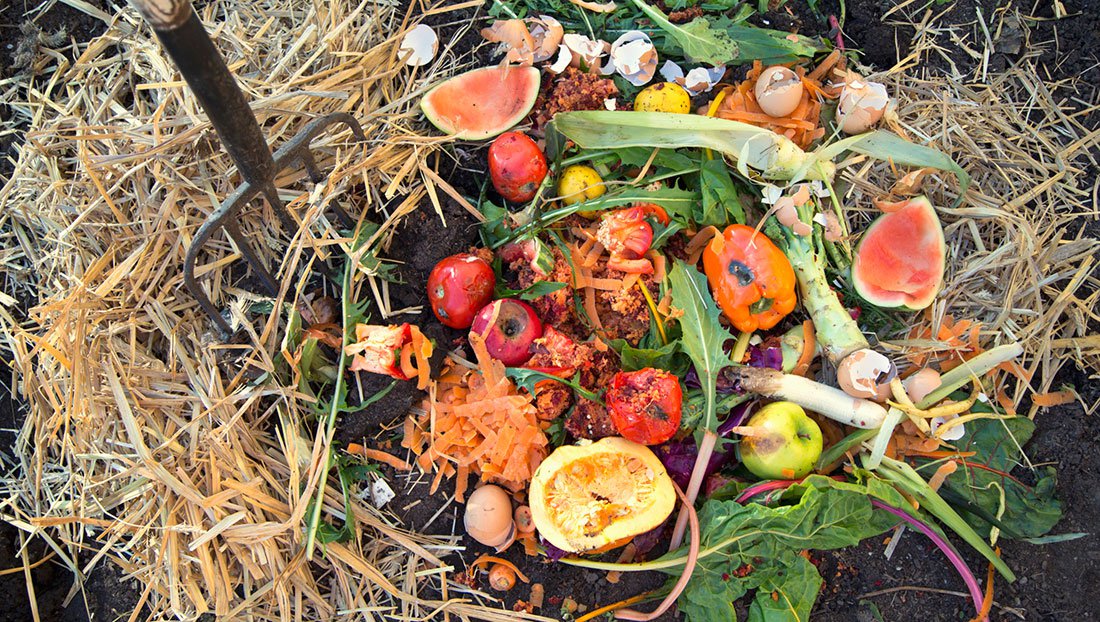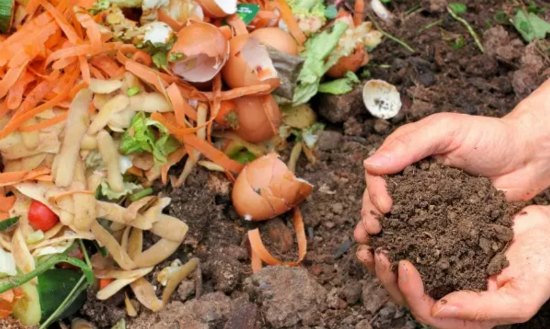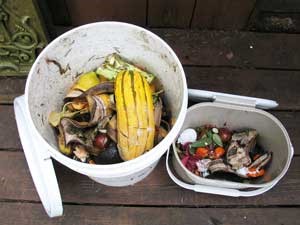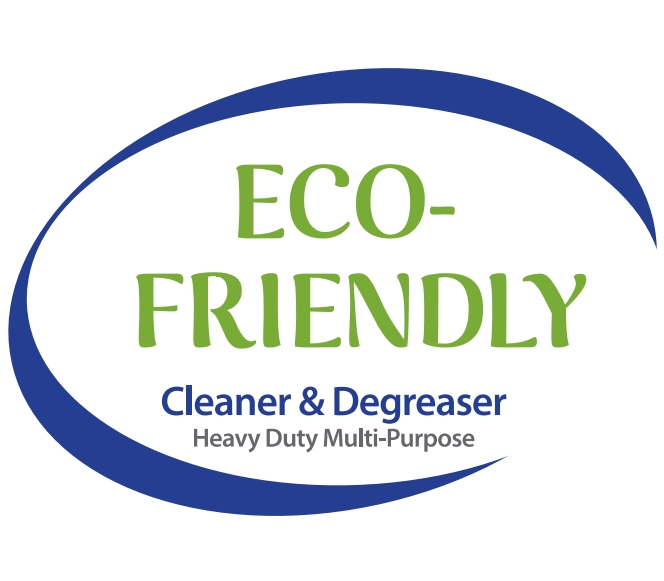


COMPOSTING
Composting is a natural biological process, carried out under controlled aerobic conditions (requires oxygen). In this process, various microorganisms, including bacteria and fungi, break down organic matter into simpler substances. The effectiveness of the composting process is dependent upon the environmental conditions present within the composting system i.e. oxygen, temperature, moisture, material disturbance, organic matter and the size and activity of microbial populations.
Composting is relatively simple to manage and can be carried out on a wide range of scales in almost any indoor or outdoor environment. It has the potential to manage most of the organic material in the waste stream including restaurant waste, leaves and yard wastes, farm waste, paper products, wood etc. and can be easily incorporated into any waste management plan.
Approximately 45 – 55% of the waste stream is organic matter, composting can play a significant role in diverting waste from landfills thereby conserving landfill space and reducing the production of leachate and methane gas. In addition, an effective composting program can produce a high quality soil amendment with a variety of end uses. Up to 90% of waste thrown out of businesses like Supermarkets & Restaurants is food scraps. Food scraps are the 3rd largest segment of the waste stream with nearly 26 million tons generated each year.
BOKASI
Bokashi is a Japanese term meaning ‘fermented organic matter’. It is often referred to as a type of ‘composting’ but it is actually a anaerobic fermentation process, resulting in a much different end product than that produced via composting. Many people like bokashi because it is very easy, and generally odour-free. All that is needed is a bucket (with lid), some special bokashi mix, and of course some organic waste. Load the organic waste into the bucket, add some bokashi mix. When the bucket is full, it is sealed shut and set aside for ten to twelve days. Every other day during that time, the leachate that is an inevitable by-product of anaerobic composting needs to be drawn off. That’s the only care required. When the bucket is opened, the contents, though recognizable, are thoroughly pickled. At this stage, the “pre-compost” as known can be buried in a shallow spot in the garden.



ECO FRIENDLY DEGREASER/ REGENERATE
Solvego HD – Alkaline based, concentrated hi forming, multi surface degreaser & cleaner
Non flammable, good carbon remover
Surfactants biodegrable product
WORM FARMING
Currently Droplets is in talks with two companies regarding the composting of wet waste in larger volumes. We are busy with trials at the moment whereby we can ascertain the quantities and the time frames required for this process. We have tried composting on a smaller scale with 20 x 25lt bucket system with a product called Bokashi pellets, which has worked well. However it is not an ideal format for mass scale wet waste composting. The two companies we are in talks with at the moment are professional organizations that deal with this type of wet waste namely; Green Turf SA & Urban Farms.
Worm farming, worm composting, vermiculture and vermicomposting are all different names for the
process of recycling organic matter with the help of earthworms. We have done extensive research down the avenue of worm farming. Studies have shown that worm castings enhance germination, plant growth and crop yield. They add micro organisms to the soil and improve water holding capacity.
We have also done trials on worm farming and are busy negotiating at the moment on land space rental including a workable structure to be in place before 2018. This whole process and structure has been possible with the assistance of the CSIR Group, who is assisting us with proper assessments & guideline structures.


